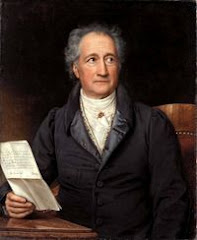What I find interesting are the different philosophies that the German people adopted throughout the middle ages. They each came about due to certain motivations and served very important parts in German society. When the Germanic peoples were living in tribes in the time of the Roman Empire, the unifying force of Christianity and the empire lead those peoples to think in a conformist and nationalistic sense. One’s goal at the time was to spread Christianity and to fight for the glory of the empire. This also meant that when the selling of indulgences was hurting the poor of the cities, one did not question the authority of the Pope, which indirectly was the authority of God. After this time, Martin Luther made the claim that this practice was wrong, which in turn lead to the Reformation. During which, Germans questioned the omnipotence of the Catholic Church. This was an influential and important time for them, which as a result affected the world and the future of Christianity. Now Christians had the option of whether to follow the Pope or to lead their own personal relationship with God and be forgiven by him and not through cash. To say this caused conflict would be an understatement. Owing greatly to the newfound ability for Germans to think for themselves, the new school of thought was born that took this freedom further. Thinkers started to suppose that the world could be understood without Religion. That things could be explained in a concrete way and life could be lived in a way that wasn’t governed by nonentities. The Enlightenment preached that people are responsible to themselves and without the assistance of anyone else to seek out knowledge and to have pride in oneself. Each of these philosophies seems to build on the previous notion. Each time the old school of thought gives rise and motivation to a new one that rejects the notions of the previous. Regardless of which, if any, of these philosophies one subscribes to it is obvious that they were each necessary in leading the people through the conflicts that they were faced with and developing them and sometimes the world into what it would one day become.
C. Demes
Saturday, March 1, 2008
Subscribe to:
Post Comments (Atom)







.jpeg)


No comments:
Post a Comment